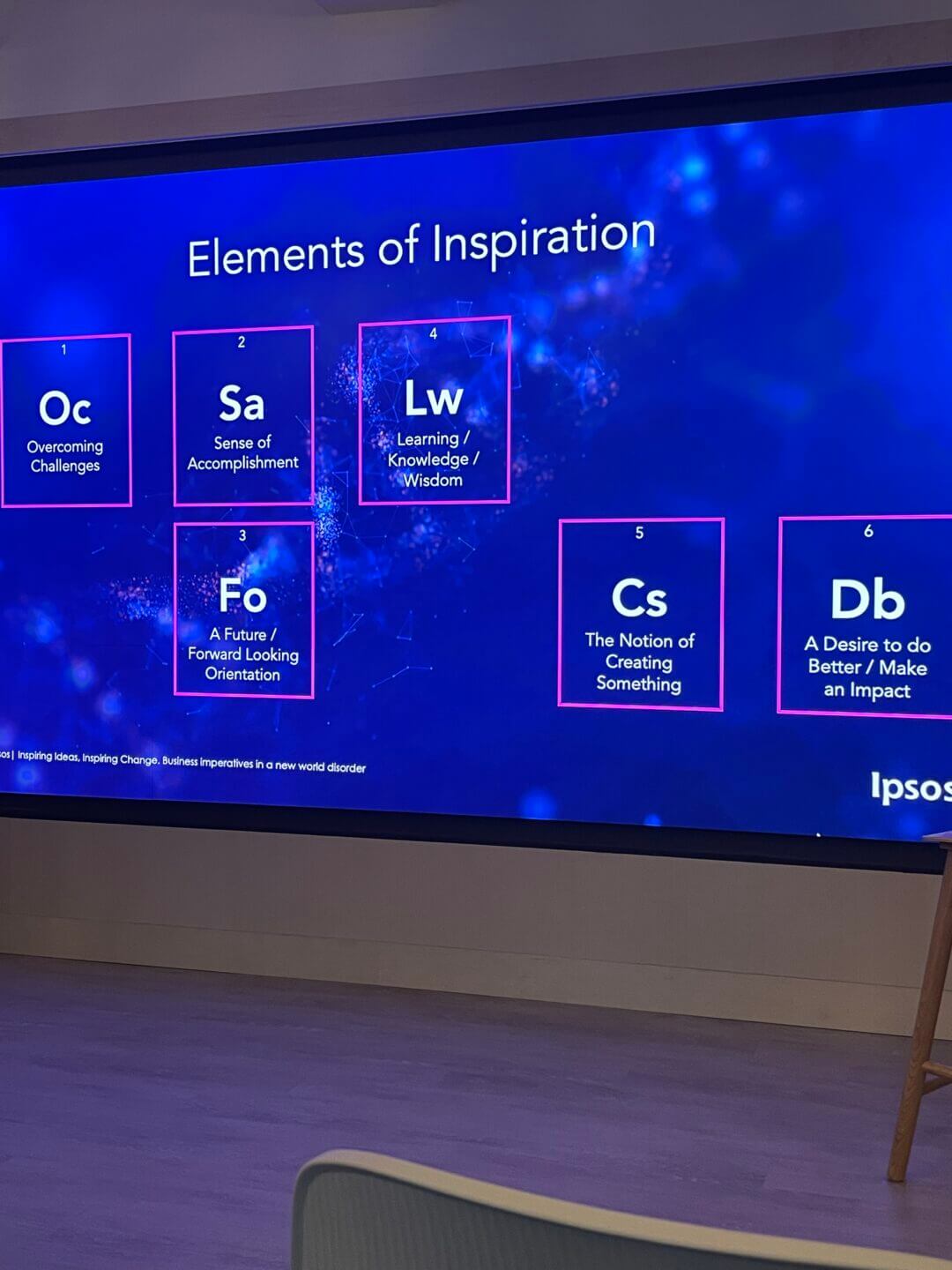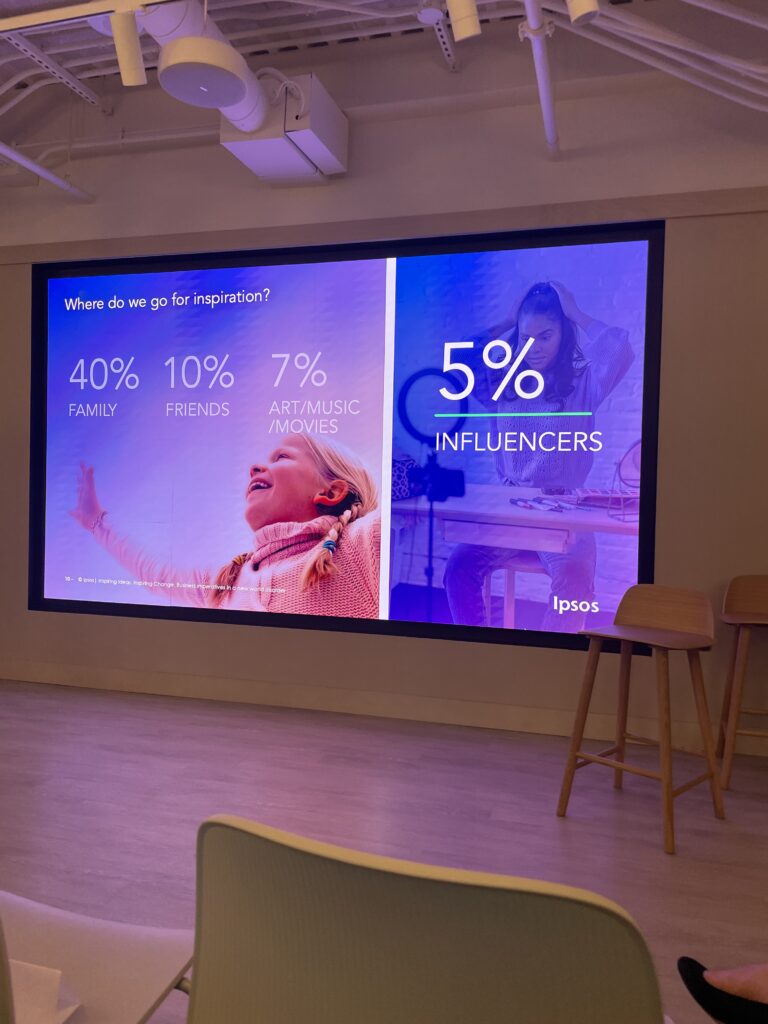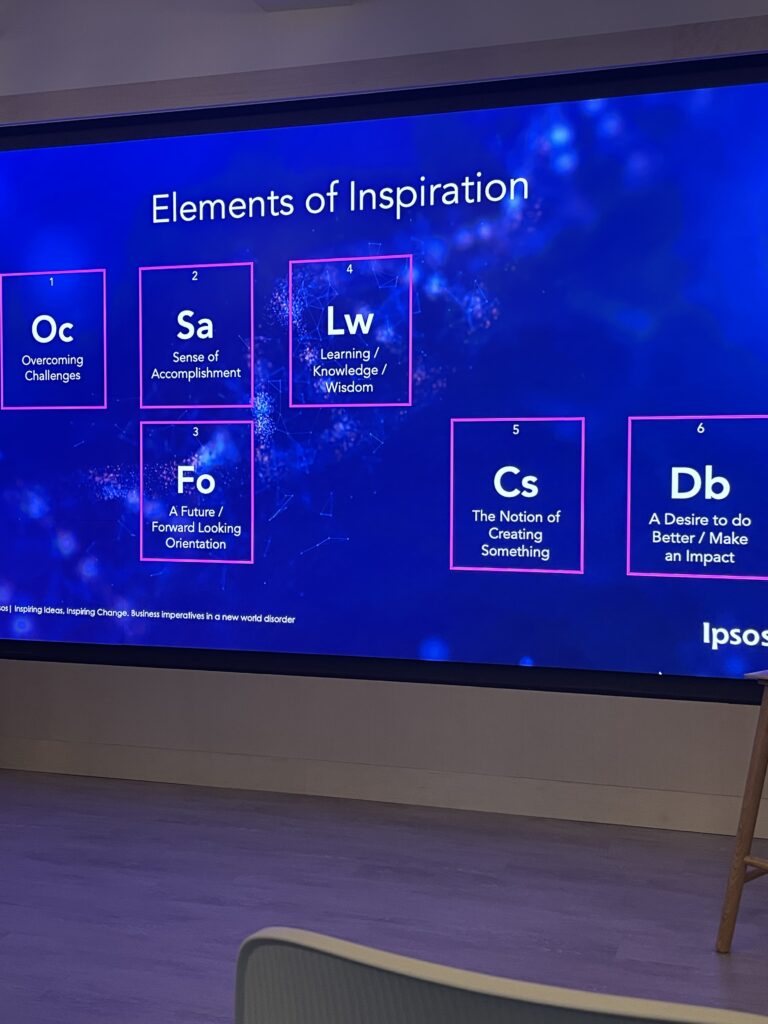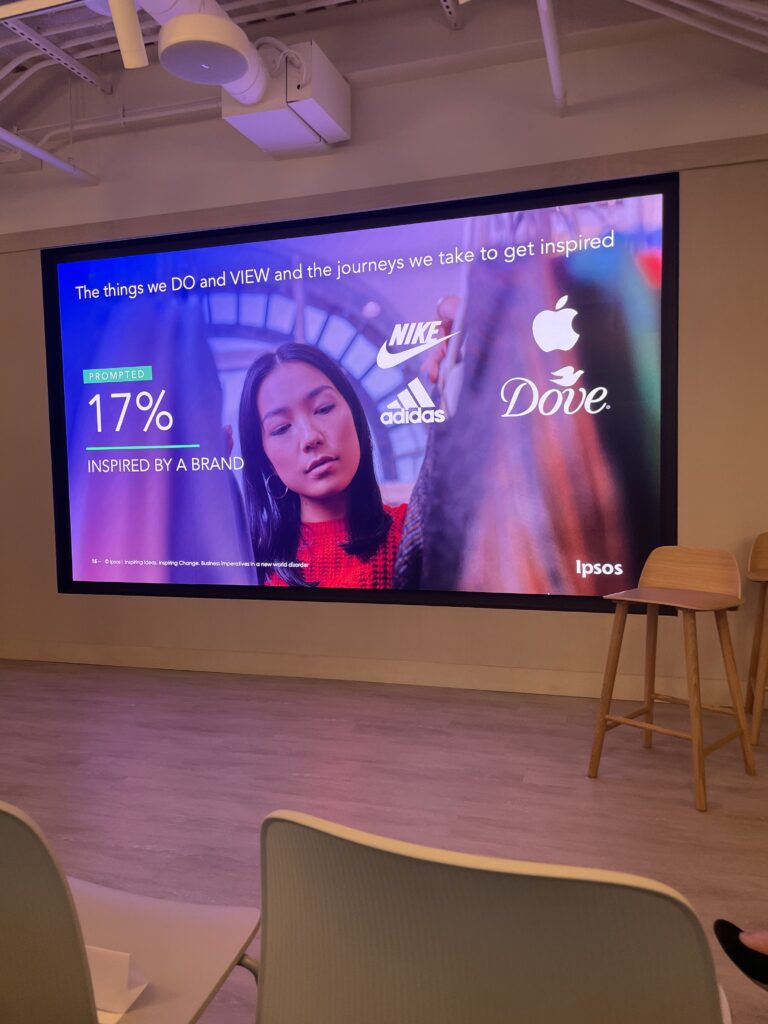
I am intrigued by some new research recently shared by Steve Levy of Ipsos on inspiration in consumer behaviour and how brands should respond to it. Ipsos conducted this eye-opening study, and it got me thinking about what inspiration means to different people and how it can profoundly affect how we connect with brands.

Ipsos asked consumers a simple yet profound question: What does “inspiration” mean to you? The responses varied, but three key themes emerged: new ideas, innovation, and feeling positive. It’s heartening to know that over a third of us experience inspiration weekly, but it’s concerning that one in five of us hasn’t felt inspired in the past six months.
Regarding sources of inspiration, it’s clear that family plays a pivotal role, with 40% of people citing their family as their primary source of inspiration, compared to influencers (5%) and celebrities (4%). To become a source of inspiration, brands must align with consumer values. The research found that brands like Nike, Dove, Apple, and Adidas have successfully done this, and the key attributes they share are honesty, authenticity, and a commitment to giving back.
So, what can smaller or medium-sized businesses learn from this? To stand out, they should strive to be inspiring and personalized and connect with consumers on a familial level. But how can they do this effectively? Ipsos identified six elements of inspiration that resonate with consumers:
1. Overcoming challenges
2. A sense of accomplishment
3. A future-forward orientation
4. Learning, knowledge, and wisdom
5. The notion of creating something
6. A desire to do better and make an impact

Interestingly, the research reveals some generational trends. Generation Z, for instance, is more likely to seek inspiration from brands, with 47% reporting that they do. Cannabis brands also seem to inspire, with 53% of consumers saying they find inspiration there. For Generation X, who often find themselves strapped for time, the figure drops to 25%.
The frequency of inspiration also varies, with 34% of respondents saying they feel inspired every week, 21% monthly, and 45% less often. Surprisingly, despite our fascination with celebrities and social influencers, we tend to look closer to home for inspiration. Family and friends contribute 40% of our inspiration, while influencers only contribute 5%. This data highlights that inspiration is a deeply personal and intimate experience.
As advertisers and brands contemplate these findings, it’s crucial to recognize that inspiration is less about celebrities and more about the people closest to us – our loved ones and acquaintances. This insight challenges the conventional wisdom of relying on famous figures for endorsement.
Certain activities, even if not inherently inspiring, can trigger inspiration indirectly. For example, cooking inspires 35% of respondents (particularly millennials and females), gardening inspires 25% (more common among older individuals and females), and playing sports encourages 14% (mainly Gen Z and males). These activities may not be inherently inspiring but provide fertile ground for generating ideas.
Ultimately, the research reminds us that inspiration often comes from other people’s experiences, which ignite ideas for our actions. Brands like Nike, Apple, Adidas, and Dove have successfully harnessed these principles, focusing on design, quality, advertising, community engagement, and support for women.

Finally, the research asked if a brand has ever inspired consumers. Seventeen percent responded positively, with Gen Z showing a higher inclination. This finding suggests that what matters most is how a brand delivers its message and actions. Brands must provide quality products, innovate, and commit to doing good.
In summary, inspiration is a complex and deeply personal phenomenon with several vital elements. It’s less about celebrities and more about personal connections and shared values. Brands that wish to inspire should focus on aligning with these values and embodying the six elements of inspiration. By doing so, they can become a source of inspiration that resonates with consumers profoundly. So, ask yourself, is your brand an inspiration?